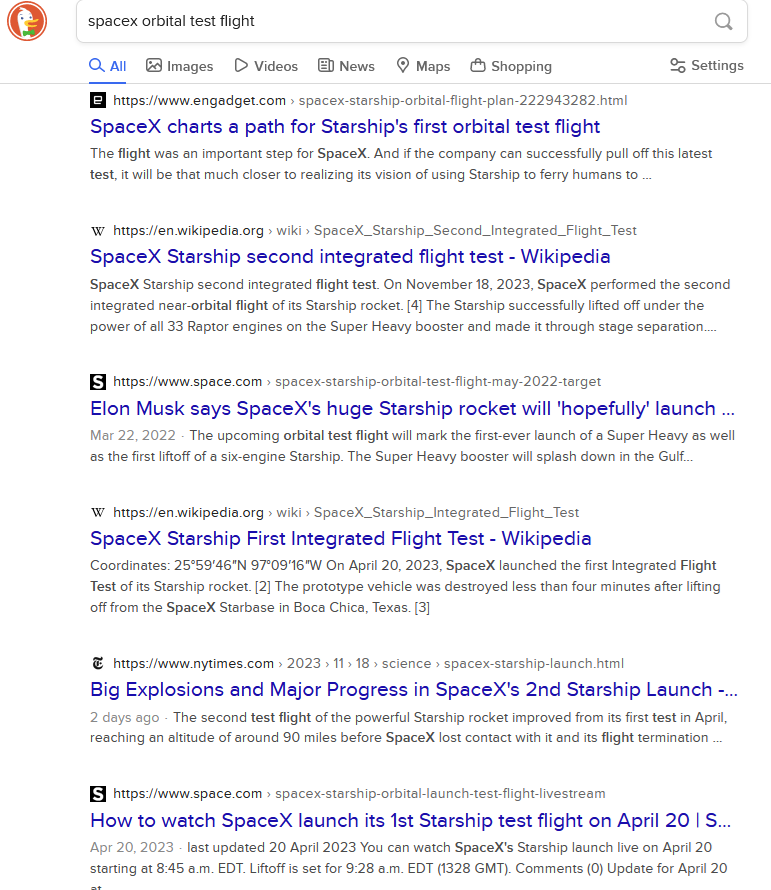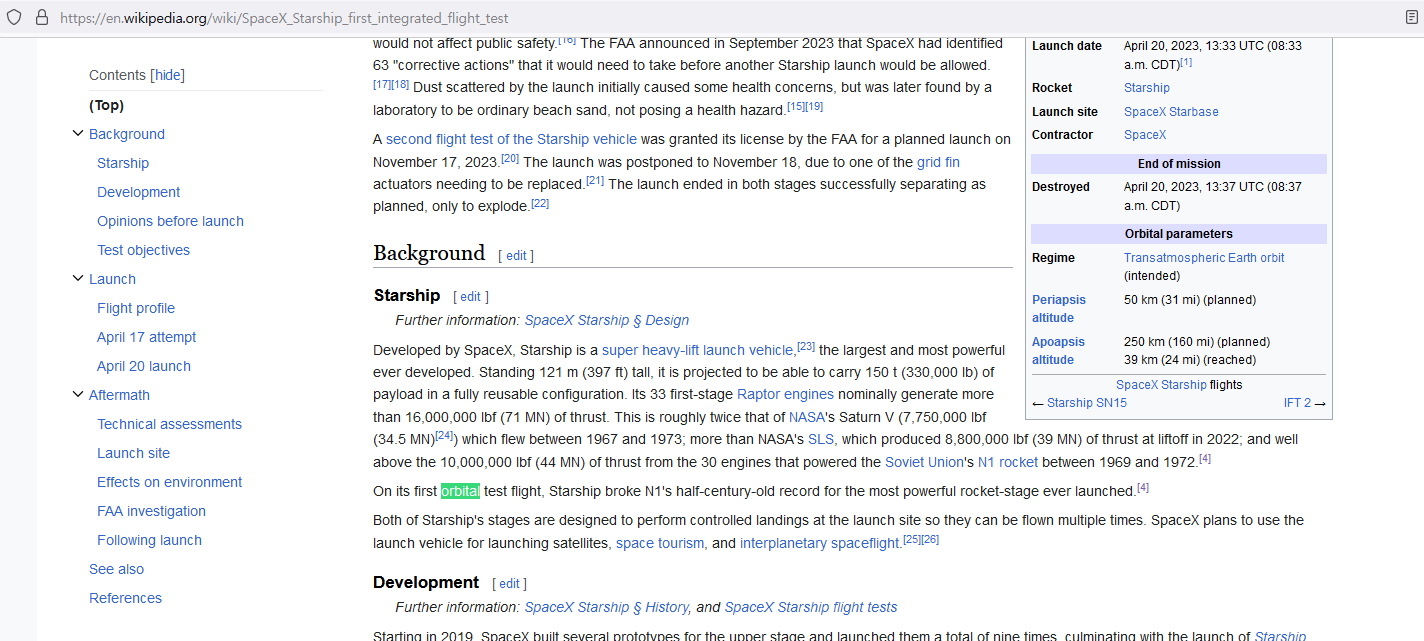April 20th 2023 launch failed spectacularly 85 seconds into the launch. Will next attempt succeed? Many markets on it but seems there's no market about achieving stage separation.
Elon Musk stated a 50% probability of reaching orbital velocity but would be happy to reach stage separation which didn't happen in the first attempt.
🏅 Top traders
| # | Trader | Total profit |
|---|---|---|
| 1 | Ṁ424 | |
| 2 | Ṁ185 | |
| 3 | Ṁ75 | |
| 4 | Ṁ25 | |
| 5 | Ṁ24 |
People are also trading
I can see there is some debate in the comment section about how much work the word "Orbital" is doing here, but this market and other related markets seem to have all priced themselves to not worry about this exact detail.
Rather than leaving the market in limbo until @FM returns to confirm, I will resolve this Yes right now. If @FM returns and declares "NONSENSE! This was not supposed to resolve yet!", we can un-resolve it and let it drag on until some launch does meet the criteria. (I think this is unlikely.)
@Eliza I for one placed my bet in the belief that the next ORBITAL flight test has a 1% probability of failure to separate, and maintain that at a minimum, this market resolution is premature.
Unlike the other Starship-related markets which you have resolved, this market specifies "Orbital flight test" in the title, and DOES NOT specify "near-orbital" in the description. (Chris Billington's market on whether a Starship orbital flight test will occur in November specified "orbital or near-orbital" in the market description. This one does not.) Unlike the first test, which was marketed by SpaceX as an "orbital" flight test, the present test was marketed as an "integrated" flight test, did not seek to attain orbit, and is not described as an "orbital" test on its Wikipedia page.
@FM, please clarify what you meant by "orbital" in the title of this market and by "achieve orbital velocity" in your comment, since the most recent test did not acheive either of those.
@chrisjbillington Media widely referred to the first test flight as "orbital", but not the second test flight.

This carried on into wikipedia's terminology for the first launch, but not the second:

@brp If the creator disagrees we will of course reopen it or do whatever they wish, but when the creator has been inactive we are not going to hold everyone's funds hostage for an indefinite period of time.
@brp That's just because they didn't know the exact trajectory yet, it was assumed it would be orbital. Also, people don't care that much about the distinction we're talking about in practice. I'm going to leave this conversation here.
@Eliza I understand your position, and it does look like @FM last interacted with the site 14d ago. I'm fixated on this because I might have even changed my mind about the most likely outcome and sold my position before @FM returned, but now the market is closed under your unilateral reading of the implicit terms, and that option isn't available.
@chrisjbillington What happened this weekend was not an "Orbital" Test launch; it was planned from the beginning to be sub-orbital.
@brp OP is clearly referring to this launch despite both it and the previous launch being planned to be slightly sub-orbital.
@chrisjbillington Three months ago @FM wrote the following: "Yes, next launch(es) is/are trying to achieve orbital velocity which is a huge achievement by itself."
That does not describe the launch as it happened: the target of this launch was a ballistic (sub-orbital) trajectory to Hawaii, not an orbital trjectory.
@brp firstly, it doesn't matter, they're clearly referring to this launch. They referred to it as the second such launch even though the first was also not quite orbital by a strict definition.
Secondly, when Musk and others talk about reaching orbital velocity, they're talking about getting to the 250km apogee, 50km perigee trajectory that they're aiming for, in which the vehicle would be travelling at a speed high enough that if pointed in a different direction, would be a 150km circular orbit. So reaching that speed is a demonstration of orbital capabilities, even if the rocket is moving on a path that intersects the atmosphere.
Bit the first point is the main one, OP is clearly referring to this launch.
@AaronBreckenridge I'll keep extending the close time until the second orbital test launch occurs. Think of it as a placeholder.
@Mqrius Yes. The success of the launch or integrity of first stage is irrelevant to this market. It's all about a successful hot staging event, which did not occur in the first test launch.
@GruffyddGozali Yes, next launch(es) is/are trying to achieve orbital velocity which is a huge achievement by itself. But this market is about a successful stage separation.
I believe a clean and optimal stage separation does increase the odds of reaching orbital velocity (and later getting to orbit) but not close to 100%, any number of things can happen to the second stage.